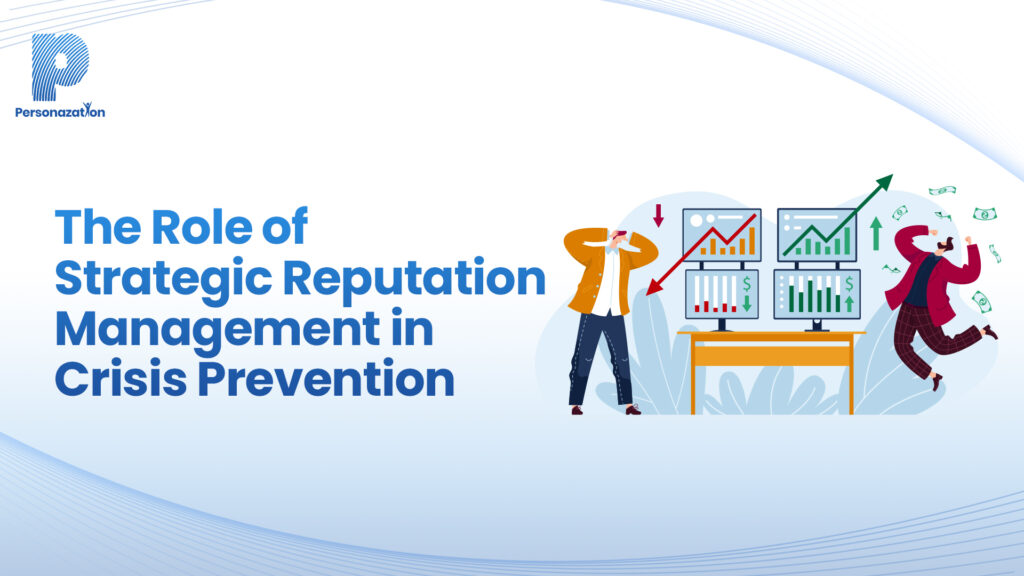Reputation is one of the most important resources in the modern world where globalization and a high rate of changes are primary indicators. Companies can attract customers and maintain their workforce through the establishment of good standings in the market.
On the other hand, reputational damage remains permanent, it can have an impact on the customer, investors, and overall business performance. This is where strategic reputation management comes into play, especially in the proactive approach we describe as Crisis Prevention.
Understanding Strategic Reputation Management
It is defined as proactively constructing, defending, and developing operational plans for the key carrier of organizational reputation – the reputation management strategy. This is in contrast to what might be called tactical reputation management, where one responds to events as they happen, instead of keeping an eye on the long-term development of reputation. This ranges from fairness in communication to integrity in business as well as the kind of relationship that is held with stakeholders.
The ultimate end product of strategic reputation management, therefore, is the quest for the creation of a reputation capital, which represents stock-in-trade goodwill that could shield a business firm in the duration of crises. This way of working prevents a crisis from occurring in the first place, as well as ensuring the negative effects of an unexpected issue are managed as effectively as possible.
The Connection Between Reputation and Crisis Prevention
The fact is that a crisis can occur to any business at any time. Regardless of whether the problem is as big as a data leak or as small as a recall of a product, crises can inevitably strike a company’s reputation. Crisis Prevention is therefore an important element of any strategic business management. Managing reputation in selected areas of organizational activity allows one to define threats, assess exposures, and prevent issues before they turn into crises.
Key Elements of Strategic Reputation Management for Crisis Prevention
To effectively leverage strategic reputation management as a tool for crisis prevention, businesses must focus on several key areas:
Proactive Monitoring:
It is therefore important to frequent such things as public perception, mentions in social media platforms, and new trends. Products such as sentiment analysis or media monitoring tools can assist companies in detecting whether the public is discussing something related to their brand and whether there will be problems in the future. Early detection helps businesses to attend to the matters before they escalate into major problems.
Transparent Communication:
A transparent communication process can be regarded as one of the key tenets of the strategic approach to reputation management. The companies that proceed with understanding and sharing information with their investors and customers enjoy more credibility. Failures in communication can result in misunderstanding which, in turn, can grow into a crisis – be it an announcement of a new policy or an admission of an error.
Ethical Business Practices:
Business sustainability calls for ethical operations more so in the current society that is more conscious of the impacts of organizations on society. The buyers and the consumers are demanding that corporations and other businesses follow certain ethically sustainable principles like inclusiveness and CSR. Organizations that follow the above principles not only build and sustain a strong corporate reputation but also minimize the chances of the existence of reputational crises due to unethical behavior.
Stakeholder Engagement:
Stakeholder relations such as those with customers, staff, and shareholders together with those of the outside community form a prime consideration in strategic management. Proactively following feedback and handling concerns show that a company is not impervious to criticism and can create a rapport that serves as a defense mechanism within a turbulent environment.
Crisis Preparedness:
Although strategic reputation management aims to avoid such situations, the organization should always be ready for it. Another way can be a fast and adequate response to the crisis provided the business has a clear work plan with all the contacts of the employees and possible scenarios of their actions.
Benefits of Strategic Reputation Management
When done effectively, reputation management offers several benefits that contribute to crisis prevention:
Enhanced Stakeholder Loyalty:
Stakeholders are willing to stand by companies with good reputations especially when the going gets rough for such companies.
Early Risk Identification:
Anticipative monitoring means that businesses can determine when a particular risk is likely to become worse than it is currently.
Improved Crisis Response:
Strategic management is a great means of ensuring that when a crisis hits a certain company, stakeholders are more inclined to have faith in the management’s actions and words.
Competitive Advantage:
Reputation is, therefore, an important business asset that can help to make it easier to acquire customers, employees, and investors with a favorable reputation relative to competitors.
Final Thoughts
In the modern world, where reputational threats can come from anything, SRM is not any more an option, but a must. By focusing on building trust, engaging with stakeholders, and operating ethically, businesses can proactively prevent crises and safeguard their most valuable asset: their reputation.
The wise saying that people use is “It takes a decade to create a good reputation and a momentary mistake to destroy it.” In fact, by focusing on strategic reputation management, the companies can guarantee that the reputation issue stays as an advantage in the organization and counteract even when facing various adversities.
However, if you are a student or a professional seeking to improve the understanding of the measures preventing crises and managing the reputation, there is an opportunity to turn to online services like Personazation for learning Purposes. Having professional help in developing the best performance work and essays, this site ensures you are provided with everything necessary for success in your educational and career life. Check out our services today and start making your way to success!


